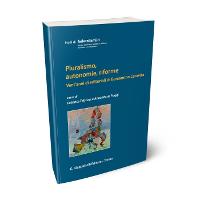
Log in or Create account
FOCUS - Los efectos de la crisis financiera sobre las instituciones nacionales N. 13 - 04/05/2020
Los efectos de la crisis financiera sobre las instituciones nacionales: gobiernos, parlamentos y tribunales
 di Sabrina Ragone
di Sabrina Ragone
This paper introduces how the multiple crises of European integration, namely Brexit, the refugee crisis, the economic crisis and the crisis of the rule of law challenge several foundations of the EU: solidarity, mutual trust and the rule of law itself. Then, it focuses in particular on the centralization derived from the financial situation of the past ten years, with respect to the rising role of the executives among domestic institutions and from a territorial perspective. These ideas bring the author to assess to what extent the failure of the European model of integration obliges to rethink traditional categories through a multidisciplinary prism.
L’Unione europea di fronte alla Brexit e ad altri processi disgregativi nel contesto globale
This paper analyses the current situation of the European Union in relation with Brexit and other disintegrating processes that are taking place in the context of globalization. The first momentum for these processes, prior to Brexit, comes from the European integration model itself that places national interests at the forefront... (segue)
Dalla crisi economica alla crisi democratica: la sfida populista alla solidarietà e l’identità europea
Although it is the main victim of the economic global and European crisis, the principle of solidarity still represents an important criterion to assess the side-effects of the crisis on European constitutional democracies. Thus, a reflection on some of the possible responses to the challenges that this time poses to constitutional democracy... (segue)
Crisis y reformas del sector público o sobre cómo racionalizar el sector público y debilitar la autonomía territorial y el Estado social
This study presents an overview of the impact of the economic crisis on the public European and national sector, with the aim of re-emphasizing the constitutional inconsistencies of a decade of public action marked by a strictly economic logic. In order to support this thesis, the article brings about some examples of national... (segue)
El Tribunal Constitucional español ante la crisis económica: la inexistencia de límites al legislador derivados del reconocimiento de derechos sociales en la CE
This article assesses the role of the Spanish Constitutional Court throughout and after the financial crisis, with respect to the case law concerning social rights. The author deals with the issue of reversibility of the scope of protection, also through the prism of the constitutional obligation to interpret rights in light of international treaties... (segue)
El papel de los ejecutivos nacionales en la crisis: una perspectiva politológica
The political and social consequences of the economic and financial crisis are still very visible, especially in the growing social and territorial inequality and the palpable corrosion of democratic institutions. This paper studies the consequences of the measures taken by national governments at the European and domestic... (segue)
-
Fascicolo n. 13/2020 (a cura di Sabrina Ragone)
 Clicca qui per aprire la versione integrale del fascicolo
Clicca qui per aprire la versione integrale del fascicolo -
El papel de los Parlamentos nacionales en la crisis económica europea: algunas breves consideraciones
This paper analyses the role and the position of National Parliaments and parliamentary administrations in the eurozone crisis using the methodological tools of a comparative approach. Long regarded as the victims of the integration process, National Parliaments have undergone a long and slow development through which they gained, especially... (segue)
-
El Tribunal de Justicia de la Unión Europea y la protección del consumidor en la crisis financiera
Consumer protection is a primary instrument to develop the EU's internal market, but it is also a relevant to define and protect the individual legal status of citizens, residents and people in general that can assume the role of consumers under EU law. As it is well known, consumer enjoys a bundle of rights under EU law, but due to the national... (segue)



 Registrati
Registrati Login
Login
 Osservatorio di Diritto sanitario
Osservatorio di Diritto sanitario Osservatorio sul diritto elettorale
Osservatorio sul diritto elettorale Lavoro Persona Tecnologia
Lavoro Persona Tecnologia Osservatorio Trasparenza
Osservatorio Trasparenza Africa
Africa Human Rights
Human Rights America Latina
America Latina Territorio e Istituzioni
Territorio e Istituzioni Storico focus
Storico focus Riforme istituzionali e forma di governo
Riforme istituzionali e forma di governo

 STUDI FEDERALISMI
STUDI FEDERALISMI




30/08/2024
29/07/2024
03/06/2024
15/03/2024
29/12/2023
04/08/2023
05/06/2023
30/01/2023
09/12/2022
28/10/2022
28/03/2022
02/02/2022
17/01/2022
12/02/2021
18/01/2021
13/11/2020
12/10/2020
17/06/2020
01/06/2020
18/05/2020
04/05/2020
24/04/2020
10/04/2020
27/03/2020
10/04/2020
25/10/2019
27/09/2019
15/04/2019
25/03/2019
14/01/2019
14/12/2018
16/11/2018
09/11/2018
14/09/2018
03/09/2018
22/06/2018
23/02/2018
27/11/2017
02/10/2017